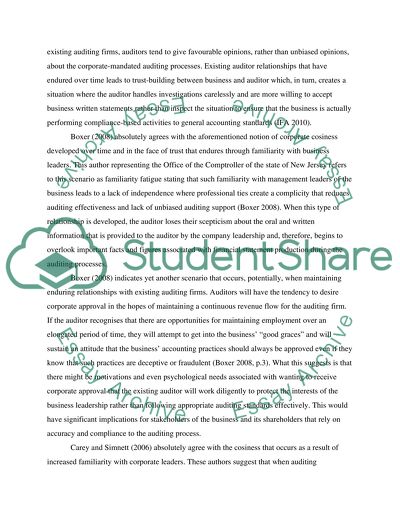Cite this document
(“Does the rotation of auditors improve the quality of auditing Essay - 2”, n.d.)
Retrieved from https://studentshare.org/finance-accounting/1494228-does-the-rotation-of-auditors-improve-the-quality
Retrieved from https://studentshare.org/finance-accounting/1494228-does-the-rotation-of-auditors-improve-the-quality
(Does the Rotation of Auditors Improve the Quality of Auditing Essay - 2)
https://studentshare.org/finance-accounting/1494228-does-the-rotation-of-auditors-improve-the-quality.
https://studentshare.org/finance-accounting/1494228-does-the-rotation-of-auditors-improve-the-quality.
“Does the Rotation of Auditors Improve the Quality of Auditing Essay - 2”, n.d. https://studentshare.org/finance-accounting/1494228-does-the-rotation-of-auditors-improve-the-quality.


